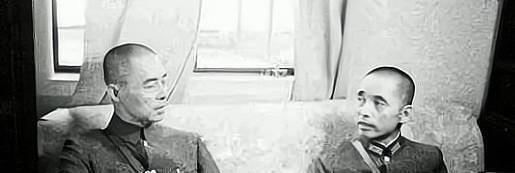In May 1940, the Battle of Zaoyi broke out, which was a major battle after the Chinese War of Resistance Against Japanese Aggression entered a stalemate. In this battle, China's fifth theater and ninth theater gathered 300,000 troops and 100,000 japanese troops to carry out fierce tug-of-war on the land of Jingchu and repeatedly fought.
In this battle, China's biggest loss was the martyrdom of Zhang Zizhong, the commander of the 33rd Group Army, and also became the soldier with the highest rank and the highest position in the history of China's War of Resistance.
In Chinese historical sources, the record of the martyrdom of General Zhang Zizhong is not very detailed. It is simply described that during the Battle of Zaoyi, at the pumpkin shop in Yicheng, Zhang Zizhong led his troops to fight fiercely with the Japanese army and was unfortunately martyred. Some details of Zhang Zizhong's death on the battlefield are unclear.

In "Memoirs of Li Zongren" and "A Brief History of the War of Resistance Against Japanese Aggression", we find a small detail: the radio signal of Zhang Zizhong's 33rd Group Army has been monitored by the Japanese army, and through various small details, the Japanese army deduced the location of the headquarters and attacked desperately, which eventually led to the death of General Zhang Zizhong.
So, in the end, the Japanese part of the surveillance, through what details to deduce the location of the command?
This, we must look for clues from Japan's war history.
To explain in advance, China's "War of Resistance Against Japan" was called the "China Incident" in Japan.
The "Operational History of the Army in the Chinese Incident" records that the Japanese army has been monitoring the radio of Zhang Zizhong's troops and reporting to the division at any time to grasp the enemy's movements. On 15 May, while sweeping the mountains near Gouyuan, the 39th Division received an order from the communications unit that "the headquarters of the 33rd Army is in Gouyuan." When the 39th Division saw the intelligence, it immediately became nervous and finally decided to launch a decisive strike to destroy it. After the war, the body was examined, including General Zhang Zizhong.
The 4th Communications Squad of the Japanese 11th Army's Communications Unit was a group specializing in deciphering Chinese military radios, and its leader, Masao Yoshimura, was a very powerful cryptographer.
Under the leadership of Masao Yoshimura, the 4th group intercepted the radio signals of the Chinese military day and night, and through screening, comparison, and analysis, basically grasped the wavelength, band, and frequency of the radio reports of various units of the Chinese military.
Although the code cannot be deciphered, it is possible to speculate on the location of the troops, the direction of action, and the distribution.
During the Battle of Zaoyi, the 4th Communications Group was arranged in Yingshan, Hubei Province, to monitor the telegrams of the military day and night, and to provide useful information to the Japanese military at any time.
On May 16, Masao Yoshimura intercepted a radio message from Zhang Zizhong's headquarters, and through analysis, accurately determined the location of Zhang Zizhong's headquarters.
The "History of the 231 Regiment", a field record of the Japanese army invading China, records in detail the process of general Zhang Zizhong's martyrdom:
A soldier of the fourth detachment named Fujioka, with a rifle, rushed to the supreme commander, and when the distance was about 3 meters, the commander suddenly stood up from the pool of blood, and Fujioka saw an unspeakable majesty in his eyes, and directly froze in place.
The third squadron leader, Donno, fired a bullet that hit the commander's head. Fujioka suddenly woke up, threw all his strength, raised his bayonet, and plunged deep into Gundam's body. Under this thorn, the tall body could no longer support it, and it fell to the ground, a generation of famous generals, and martyred the country.
After Chiang Kai-shek received the news, he directly ordered the Fifth Theater of Operations to retake Zhang Zizhong's remains at all costs. Huang Weiguo led his troops to cross the Xiang river again, fought fiercely with the Japanese army, and retrieved the bones of heroic martyrs.
After the coffin was transported back to Chongqing, Chiang Kai-shek led all the members of the Central Military Commission to the wharf to greet them and hold a state funeral. A solemn memorial service was also held in Yan'an. In particular, Zhou Enlai, who once advised him to quit smoking, now sacrificed his life for the country, and wrote for the monument that "his loyalty and righteousness, his heroic spirit, can be the soul of the mainland anti-war soldiers."